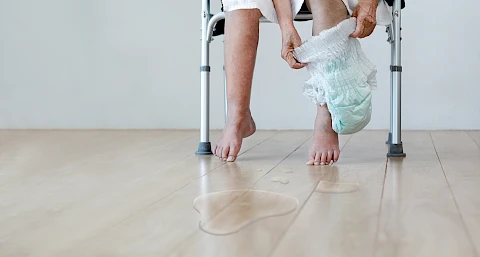
November marks Bladder Health Month, a time dedicated to raising awareness about maintaining a healthy bladder. For seniors, bladder health is particularly vital as it can significantly influence their well-being and quality of life. With age, changes in bladder function can become more common, making it essential to stay proactive. From staying hydrated to establishing bathroom routines, adopting simple habits can make a difference.
Bladder Health and Aging
The bladder plays a critical role in removing waste from the body by storing urine until it's time to use the bathroom. However, aging can cause the bladder muscles to weaken, and its capacity may decrease. Older adults may experience common bladder issues, such as incontinence or an overactive bladder, making maintaining bladder health essential in the senior years. Understanding how the bladder functions and adopting healthy habits can help seniors manage these changes effectively.
Tip 1: Stay Hydrated
Adequate hydration is vital for bladder health, preventing urinary tract infections and reducing the risk of bladder discomfort. Seniors should drink about 6-8 cups of water daily. While concerns about frequent bathroom trips are common, you need to remember that not drinking enough can lead to more problems like dehydration.
Tip 2: Exercise Pelvic Floor Muscles
Strengthening the pelvic floor muscles can be beneficial in managing urinary leaks and improving bladder function. Simple exercises, known as Kegel exercises, can be done to fortify these muscles. To do this, tighten the muscles you would use to stop urination, holding for a few seconds and then releasing. Regular practice can yield significant benefits over time. Just remember to check with your doctor before starting any new type of exercise.
Tip 3: Avoid Bladder Irritants
Certain foods and drinks can irritate the bladder, causing discomfort and increasing the urge to urinate. Common irritants include caffeine, alcohol, and spicy foods. Identifying and reducing the consumption of these irritants can make a difference. Try to keep track of any bladder symptoms after consuming such items. Milder alternatives like herbal teas and bland snacks are often gentler on the bladder and can minimize irritation.
Tip 4: Monitor Medication Side Effects
Some medications can impact bladder health, causing increased frequency or urgency or even contributing to incontinence. Regularly review your medication list with healthcare providers for potential adverse effects. Doctors can often suggest adjustments or alternatives if you’re experiencing bladder issues as side effects.
Tip 5: Establish a Bathroom Routine
Having a regular bathroom schedule can assist in managing bladder health. Setting specific times to use the bathroom throughout the day trains the bladder to hold urine for appropriate times. Creating and maintaining a routine minimizes unexpected urges and accidents, making daily activities less worrisome.
Tip 6: Consult a Healthcare Provider
Always consult a healthcare provider if their bladder issues become bothersome. A doctor might order additional testing or suggest specialized treatments to manage the issue. They can also rule out any underlying conditions potentially contributing to the problem.
Maintain Overall Well-Being With Tailored Support From Senior Helpers
Maintaining bladder health can do wonders for your comfort, confidence, and overall well-being in your golden years. If you’re considering getting professional support, including reminder services to help you maintain routines that support bladder health, Senior Helpers Greenwood-Aiken, SC, is always happy to help. We provide professional home care solutions that cover various facets of elderly care. Contact us for personalized support and assistance in Aiken, Greenwood, North Augusta, Chapin, and Leesville.